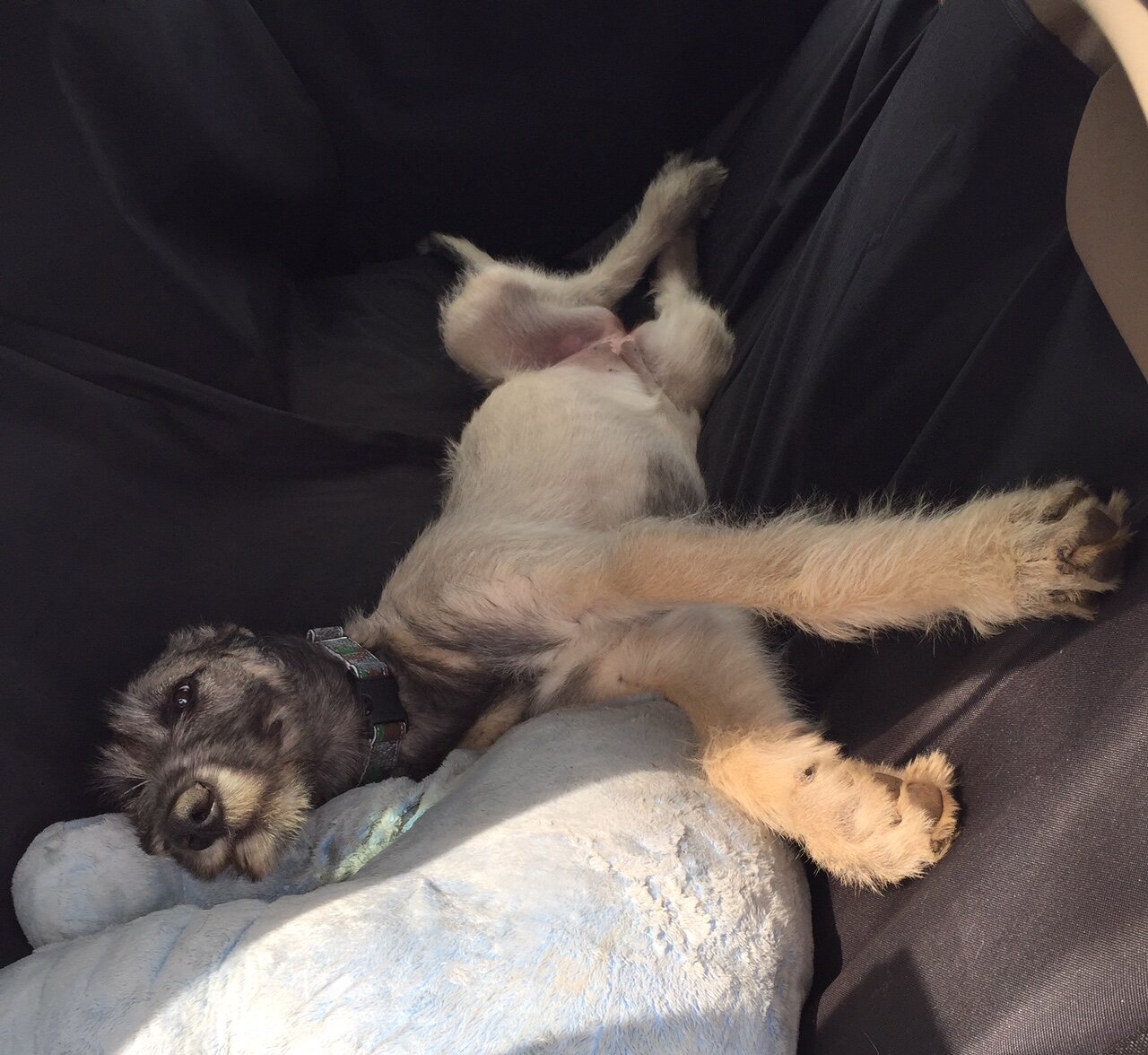Puppies are more likely to get carsick than adult dogs, because the parts of the inner ear used for sensing balance are not yet fully developed. This likely creates a “seasick” feeling. Most will outgrow this eventually, but the anxiety that develops from unpleasant car rides can linger.
Common signs of carsickness:
Puppy hiding under seat cover.
Drooling, repetitive lip licking, gagging, retching, vomiting
Panting
Whining, barking
Sweaty paws
Trembling, pacing
Gas or diarrhea
Hesitance or refusal to get into car, trying to escape from car
What you can do to help:
Relaxed and comfortable!
Withhold food for a few hours before the car ride, so your dog’s stomach is empty. (Do give water.)
Try a few different positions in the car. Most dogs do better when they can see out the front window. On the other hand, some dogs are calmer when they can’t see out.
Make sure your dog is safely secured using a seat belt, tether, or crate. A loose dog can distract the driver, and go flying if there’s an accident.
Crack the side windows open. (Don’t open the window wide enough for your dog be able to stick his head out - flying debris can hit his eyes.)
Keep the car cool and play calm music.
Drive carefully and smoothly. Be slow and gentle when you’re starting, stopping, and going around turns.
Keep trips very short at first, and lengthen over time. Start with just exiting the driveway and returning. Progress to going down the block, then a mile away, etc.
Take frequent, short trips to fun destinations like the park or a friend’s house.
Associate the car itself with fun things. Play in the back seat without driving anywhere. Feed meals inside. During car rides (as long as your dog won’t vomit afterwards), give him treats or chews (eg bully stick).
Try giving your dog ginger snaps or ginger capsules before the ride. (Ask your vet about proper dosing.)
Ask your vet about Cerenia, a prescription medication for nausea, or giving Dramamine or Bonine/Antivert.
Dramamine and Bonine/Antivert should be given at least 30 minutes (better 1 hour) before departure.
Dosing for dimenhydrinate (Dramamine) is 4–8 mg/kg, every 8 hours.
Dosing for meclizine (Bonine and Antivert) is 4 mg/kg, every 24 hours.
Cerenia should be given 2 hours before departure.
Dosing for maropitant (Cerenia) is 8 mg/kg, every 24 hours, for up to 2 consecutive days.
Always check with your vet before giving your dog medication, as it may be contra-indicated based on your dog’s individual medical history or other medications they are taking.
Sources for dosing instructions: Motion Sickness in Small Animals: Pathophysiology & Treatment (use textize.net to see full text) and Maropitant Citrate.



